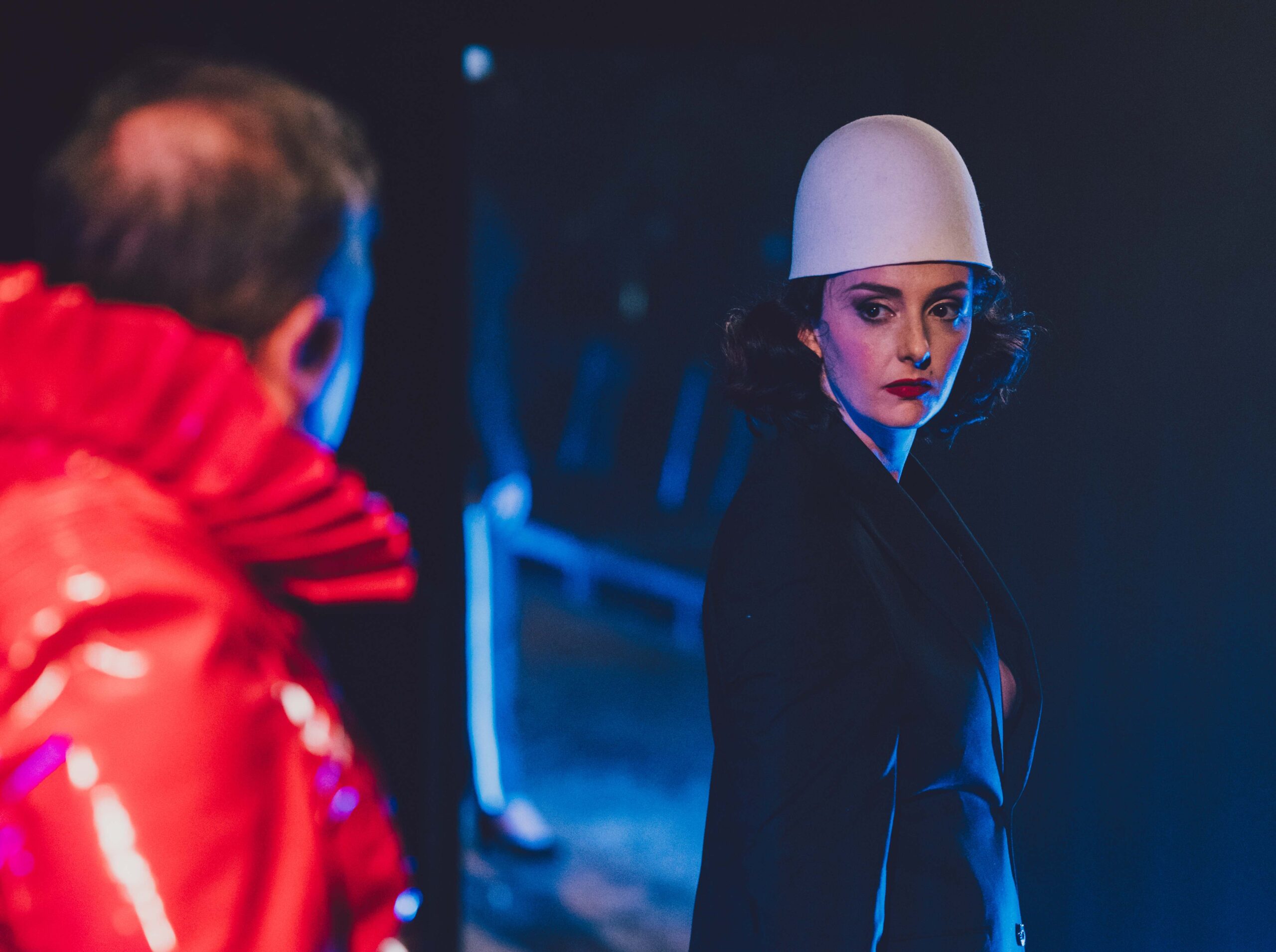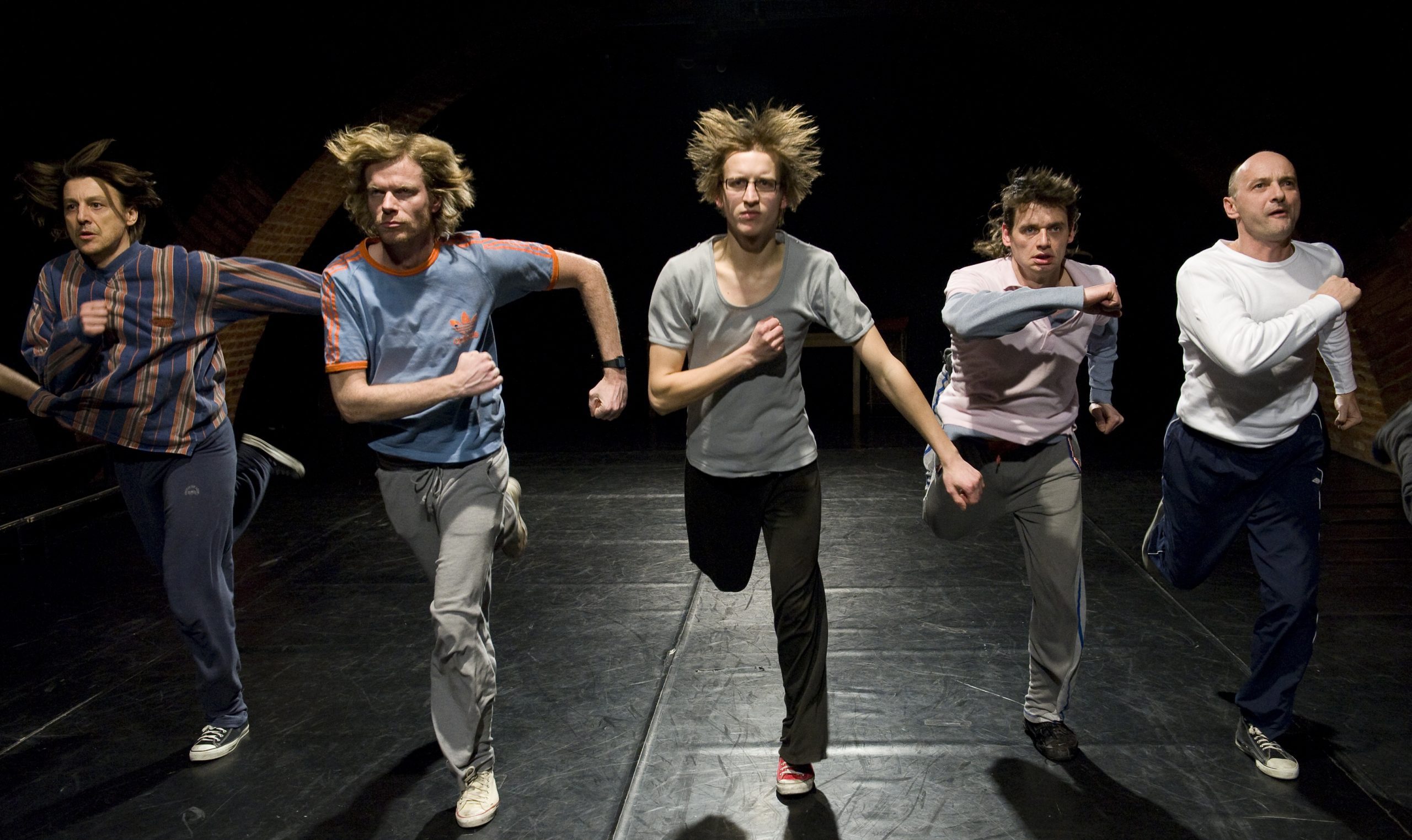This year’s POLIS Teatro Festival, which takes place annually in Ravenna, has a Balkan focus. Cofounders Agata Tomšič and Davide Sacco, of ErosAntEros, explain why they want to bring work from the region to Italian audiences.
Natasha Tripney: Why did you decide to found the Polis theatre festival 2018? You talk about wanting to bring theatre closer to society – what do you mean by this?
Agata Tomšič and Davide Sacco: For 13 years as ErosAntEros we have been carrying on an aesthetic-political theatre that employs a variety of sources and expressive languages, with the aim of connecting theatre to life and making imagination a tool to transform reality.
When we founded the festival in 2018, it was natural for us to search for these peculiarities also in the artists we host, trying to bring to Ravenna works by artists who use contemporary performative languages to reflect on themes we feel are important to share with people. Not only performances by the protagonists of the European scene, but also emerging artists, formative and participatory projects, which also want to guarantee access to the theatre for all segments of the population, from young people to those who do not usually set foot in cultural venues for economic or social reasons.
This is an issue we care a lot about and for which every year POLIS carries out a twofold action: at an international level with its own productions and international performances, and at a local level by involving a large number of collaborations in the area, with Universities, schools, social cooperatives, cultural associations, within projects that cover the entire year and culminate in the festival. Hence the name POLIS, which pursues the utopia of returning theatre to the centre of society’s life, stimulating citizens to be active and aware spectators.
Natasha Tripney: Why did you choose to focus on the Balkans this year? What about the work being made in the region excites you?
Agata Tomšič and Davide Sacco: We think that the Balkans offer a privileged mirror through which we can reflect on today’s Europe, the conflicts that run through it, the barriers that surround it. It is the place where the last European fratricidal war took place until last year and the passage of one of the most important and violent routes that migrants take to try to enter Europe to enjoy a small part of the privileges that we European citizens enjoy every day without paying attention, often to the detriment of the territories from which these people are fleeing.
The works of Oliver Frljić, Žiga Divjak, Jeton Neziraj, and Branko Šimić that we are hosting at the festival this year are emblematic for this ability they have to allow us to mirror ourselves and also enter into a relationship with other fundamental themes of our present, such as the Mediterranean migratory route that we address in our latest work LIBIA, the concept of the “enemy” explored by the dance-theatre company Zone -poème- after a long stay in the area of the former Yugoslavia in order to understand today’s conflicts through it.
In order to reflect on these issues from other perspectives as well, we have organised a round table in collaboration with the University of Bologna, in which university professors of political science and geography are invited to dialogue with some of the guest artists at the festival. Another project launched this year of which we are very proud is a collaboration with some of the city’s libraries and bookshops, which for several weeks have been displaying in-depth bibliographical studies on the Balkans, on site and online, in order to make people aware of these issues and allow those who wish to do so to delve into them.

Jeton Neziraj’s Sworn Virgin
Natasha Tripney: How familiar are Italian audiences with Balkan theatre?
Agata Tomšič and Davide Sacco Not at all! In fact, the greatest challenge is to convince the spectators of Ravenna that they have a unique opportunity during these days to see in their own city some of the most recognised and provocative artists of these territories, both for the high aesthetic value of their languages and for the content of their works. Sometimes it is also difficult to get them used to watching performances in the original language. Italy has an important tradition of movie dubbing, a veritable art, which, however, means that spectators are in no way used to reading the subtitles in films, and even less so the surtitles in theatres, and so before they have this experience for the first time some are afraid of it. Our challenge also lies in getting them used to this, as well as of course getting them to come to the theatre to see works by artists they do not know, whom they have often never heard of.
Natasha Tripney: Which artists have you selected for this year’s festival? Is there a common theme that unites them?
Agata Tomšič and Davide Sacco These are artists and works that we have met over the past few years, travelling around Europe with ErosAntEros projects, or when we were invited as artistic directors to follow showcases. Agata is Slovenian, even though she studied and has always worked in Italy, but we have always had a great attraction for theatre from south-eastern Europe and have always attended whenever we could. When we decided to make our festival international, dedicating each year POLIS to another geographical or linguistic area, the Balkans, understood in the broadest possible sense, immediately jumped out.
But we would like to say that at the festival we do not only host artists from those territories, but also Italian or European artists who reflect on issues concerning those areas. So, for example, in addition to the artists I mentioned earlier in this year’s edition we also hosted a monologue on the genocide in Srebrenica by Roberta Biagiarelli, which since 1998 has been performed more than 600 times, and we decided to bring it to Ravenna as well, in a double performance: in the evening for our spectators and in the morning in a special project for the high schools of our city.
Natasha Tripney: Part of your selection process is conducted by the audience – how does this work?
Agata Tomšič and Davide Sacco: POLIS is a partner of two national networks through which we have decided to give space in our festival to emerging artists and companies. One of these networks, L’Italia dei Visionari (Italy of Visionaries), consists of a dozen festivals that all launch a single national call every year in which around 400 productions participate. Then each partner launches a local call in its own city for people, “Visionaries” spectators of very different ages who have the task of viewing all the videos of the shows that took part in the national call and, through a long process of meetings, of deciding, in the case of POLIS, two productions that will be scheduled in the next edition of the festival.
For POLIS, the active participation of the audience is something very important, ever since the first edition, ever since the choice of the name of our festival. It was therefore natural for us to join this network a few years ago, and every year we have about 40 citizens from Ravenna and the surrounding area who enthusiastically participate in this project, which is also a wonderful exercise in democracy, community-building, and bringing people closer to the theatre at the same time.

Damned Be the Traitor of My Homeland! Photo: Ziga_Koritnik
Natasha Tripney: What role does the festival play in the cultural life of Ravenna?
Agata Tomšič and Davide Sacco: Ravenna is a very rich city culturally, where there is a very strong theatrical and musical tradition, thanks to the important institutions founded in agreement with the public administration in the 1990s that still continue to do excellent work in the area. However, in just a few years and with very minimal resources (disproportionate to the ambition of our projects) POLIS has succeeded in imposing itself within the Ravenna cultural scene because it has filled a gap: that is, it has brought contemporary European theatre to Ravenna, which before, except on a few rare occasions, had never set foot there, or at least never within an event dedicated exclusively to it.
But all of this would not have been possible without the faith in our work of a number of public and private institutions, and the madness of us and our collaborators in jumping in and following us in oversized ventures in relation to our economic-organisational structure. That kind of madness that you also have when you decide to embark on an artistic journey, pursuing a utopia that is so important to you that it comes before anything else.
Natasha Tripney: How did the festival respond to the challenges of the pandemic?
Agata Tomšič and Davide Sacco: The closures due to the pandemic surprised and shocked us, as it did everyone. But after a few weeks, we felt the need to get back together as a theatre community and try to talk about what was happening and what we were going to do in the future. So, while we found ourselves unable to stage and create live performances, we decided to turn the entire 2020 edition of POLIS Teatro Festival into a big international online conference (whose videos are still available on Facebook and YouTube channels). It was a very powerful moment of sharing. And a wonderful thing happened immediately: the publishing house Editoria & Spettacolo contacted us and proposed to turn the conference materials into a book. So the book Quale teatro per il domani? (Which Theatre for Tomorrow?), curated by Agata, was born. It contains contributions from over 60 theatre artists, scholars and professionals from all over the world.
The POLIS Teatro festival takes place between 2nd-7th May 2023. For further information, visit PolisTeatroFestival,org
Further reading: review of Žiga Divjak’s The Game
Further reading: review of Jeton Neziraj’s Sworn Virgin
Natasha Tripney is a writer, editor and critic based in London and Belgrade. She is the international editor for The Stage, the newspaper of the UK theatre industry. In 2011, she co-founded Exeunt, an online theatre magazine, which she edited until 2016. She is a contributor to the Guardian, Evening Standard, the BBC, Tortoise and Kosovo 2.0








